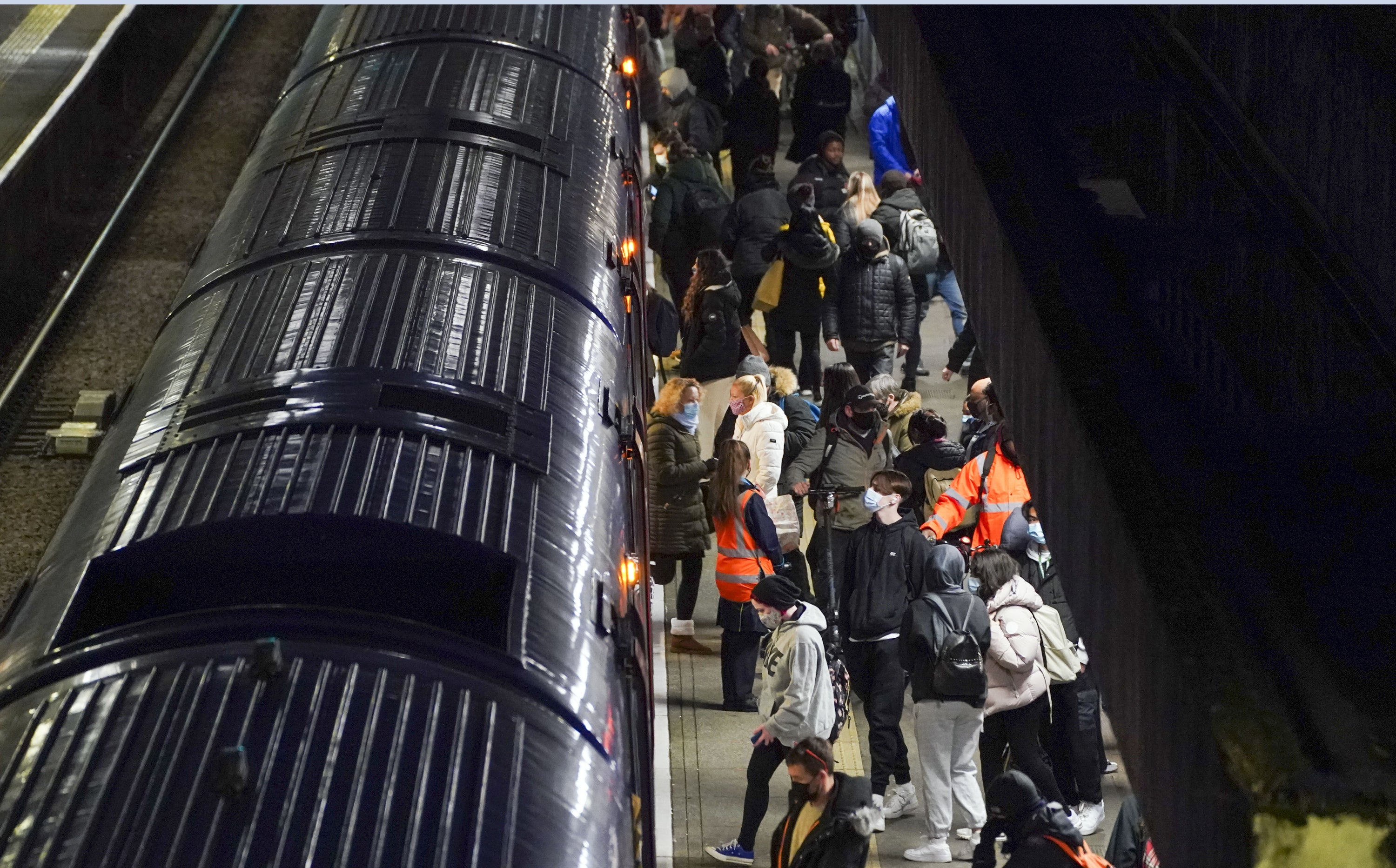80% of Britain’s train services expected to be cancelled by strike action
Passengers will face commuter chaos from today due to the biggest strike by rail workers in 30 years.

Your support helps us to tell the story
From reproductive rights to climate change to Big Tech, The Independent is on the ground when the story is developing. Whether it's investigating the financials of Elon Musk's pro-Trump PAC or producing our latest documentary, 'The A Word', which shines a light on the American women fighting for reproductive rights, we know how important it is to parse out the facts from the messaging.
At such a critical moment in US history, we need reporters on the ground. Your donation allows us to keep sending journalists to speak to both sides of the story.
The Independent is trusted by Americans across the entire political spectrum. And unlike many other quality news outlets, we choose not to lock Americans out of our reporting and analysis with paywalls. We believe quality journalism should be available to everyone, paid for by those who can afford it.
Your support makes all the difference.Rail strikes are expected to cause the cancellation of about 80% of train services across Britain today.
From Tuesday, train passengers will face chaos with only a fifth of services running and half of lines closed, due to the biggest strike by rail workers for a generation.
According to reports in the Guardian and BBC, only around 20% of rail services will be running today.
Train services are expected to be impacted on the days without planned strike action as well due to knock-on effects – with about 60% of normal services running.
Last-ditch talks failed to resolve the bitter dispute over pay, jobs and conditions, with all sides blaming each other for the lack of progress.
Much of Britain will have no passenger trains for the entire day on Tuesday, including most of Scotland and Wales, the whole of Cornwall and Dorset, and places such as Chester, Hull, Lincoln and Worcester.
Services will primarily be restricted to main lines, but even those will only be open between 7.30am and 6.30pm.
Thousands of members of the Rail, Maritime and Transport (RMT) union at Network Rail and 13 train operators will walk out on Tuesday, Thursday and Saturday.
Those operators not involved in the industrial action will still suffer from disruption due to Network Rail signallers going on strike.
London Underground workers will also walk out on Tuesday.
Unions reacted with fury to reports Labour has banned its frontbenchers from picket lines, in a memo leaked to Politics Home.
Sharon Graham, general secretary of Unite, told the PA news agency: “The Labour Party was founded by the trade unions and we expect Labour MPs to defend workers, by words and by actions.”
This week’s strikes will cause travel misery for millions.
Pupils and parents are being urged to make an alternative plan for getting to school for A-level and GCSE exams on Tuesday and Thursday.
Now is the time to come to a sensible compromise
Motorists are warned to expect a surge in traffic as train passengers switch to road transport.
The AA predicted that the worst affected roads are likely to be main motorway arteries, as well as rural and suburban areas.
About half of Great Western Railway’s trains due to serve Castle Cary in Somerset, carrying revellers to the Glastonbury Festival between Wednesday and Friday, are cancelled.
Prime Minister Boris Johnson is expected to say ahead of a Cabinet meeting on Tuesday that unions are “harming the very people they claim to be helping”.
He is set to accuse unions of “driving away commuters who ultimately support the jobs of rail workers”, while also hitting businesses across the country.
He will say: “Too high demands on pay will also make it incredibly difficult to bring to an end the current challenges facing families around the world with rising costs of living.
It is clear that the Tory Government, after slashing £4bn of funding from National Rail and Transport for London, has now actively prevented a settlement to this dispute
“Now is the time to come to a sensible compromise for the good of the British people and the rail workforce.”
RMT general secretary Mick Lynch said Network Rail had offered a 2% pay rise with the possibility of a further 1% later dependent on efficiency savings.
He told BBC’s Newsnight that Network Rail had “escalated” the dispute during Monday’s talks, saying: “They have issued me a letter saying that there are going to be redundancies starting from July 1.
“So rather than trying to come to an agreement in this dispute, they’ve escalated it by giving us formal notice of redundancy amongst our Network Rail members.”
He warned the dispute could continue for months, adding: “It is clear that the Tory Government, after slashing £4bn of funding from National Rail and Transport for London, has now actively prevented a settlement to this dispute.
“The rail companies have now proposed pay rates that are massively under the relevant rates of inflation, coming on top of the pay freezes of the past few years.
“At the behest of the Government, companies are also seeking to implement thousands of job cuts and have failed to give any guarantee against compulsory redundancies.”
The Department for Transport disputed Mr Lynch’s clams, adding that it has cost taxpayers about £600 per household to keep the railway running during the coronavirus pandemic.